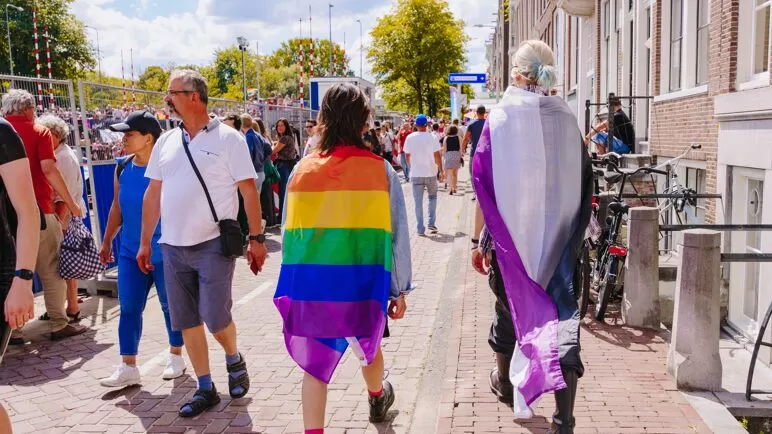In 2025, something remarkable happened in a tiny town of just 7,000 souls resting along the rugged West Coast — it finally hosted its very first Pride celebration. You might think, in a year when so many parts of American life seemed to be taking a step backward on LGBTQ+ acceptance, how could this little place still be moving forward? Yet, progress doesn’t always follow a straight line, and this town’s story shows exactly why hope can take root even in the most unexpected soil.
Kay, who grew up there, shared a deeply personal reflection with me, and honestly, their words struck a chord I can’t shake. This town had once been a fort, a hub for logging and fishing — industries soaked in raw, rugged masculinity and the heavy weight of colonial and patriarchal history. It wasn’t exactly a place humming with acceptance or gentle understanding. The air was thick with old, rigid ideas about who people should be — ideas that left no room for anyone who didn’t fit the narrow mold of “male” or “female,” “straight,” or “normal.” Growing up, Kay rarely heard the word “gay,” let alone anything about the vast, colorful spectrum of human identity.
Imagine being a kid trapped in a body that felt like a stranger — your own skin revolting against you, your identity invisible and misunderstood. Kay told me about feeling disgusted by their body, struggling with the simple act of dressing or bathing without feeling out of place or ashamed. School wasn’t a refuge; it was a battleground where classmates mocked them and doctors dismissed their discomfort as something pathological. The isolation cut deep, leaving Kay withdrawn and silent, their pain twisting into physical symptoms like nausea and seizures. It’s heartbreaking to hear how their parents—loving but simply unprepared—could only watch helplessly, turning to doctors who had no answers. I can’t help but wonder how many other kids out there are still suffering in silence.
Then, decades later — in their 40s! — Kay found a lifeline in words and labels that finally fit. Discovering identities like agender and asexual was like breathing fresh air after years underground. Suddenly, the mirror reflected truth, and the invisible threads that tied their pain to misunderstanding began to unravel. If this had happened sooner, what a different childhood Kay might have had. They chuckled with a bittersweet sound when they said, “Better late than never,” but I felt the weight of all those lost years in that simple phrase.

This place has changed, too. The old industries that once defined it — fishing, logging, the military base — have faded away. Newer, more colorful communities are sprouting up, like wildflowers reclaiming fallow fields. Tourism has become the new heartbeat, and with it, a fresh cultural landscape where queer flags flutter proudly outside local businesses and once-hidden people now step into the sunlight without fear.
When Kay talks about today, their voice holds a mix of relief and fierce determination. They emphasize that every single person, regardless of gender or whom they love, deserves to break free from confining boxes. Our identities are like a sprawling, tangled forest — messy, beautiful, and bursting with life. A world that tries to prune us back to neat little shapes is unnatural and cruel.
Yet, there’s a shadow looming still — a push by some to drag us back into dark, archaic times, where difference meant danger and silence was survival. Kay’s call to action is clear and urgent: We cannot let that happen. We must stand, shout, and protect not only ourselves but the children who deserve a world where they can be fully seen and loved.
Reading their story, I feel both the sting of past wounds and the thrilling pulse of transformation. It reminds me that even when the world seems bent on closing doors, there are always cracks where light slips through. And sometimes, that light begins in the smallest towns, in the quiet bravery of people like Kay, finally living and loving out loud.


The way you described the town’s history and how its first Pride event defied expectations really resonated with me. It seems like progress can emerge even where it feels least likely, which is kind of hopeful.